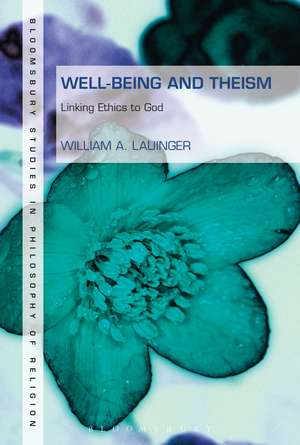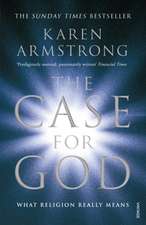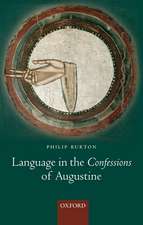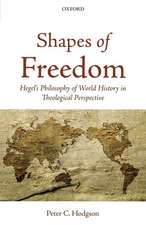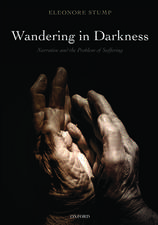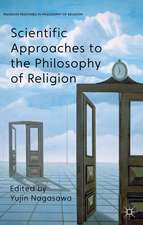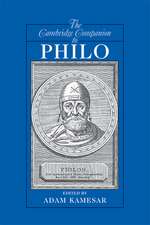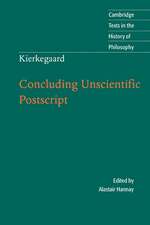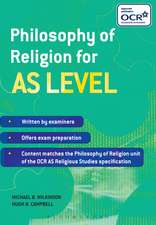Well-Being and Theism: Linking Ethics to God: Bloomsbury Studies in Philosophy of Religion
Autor Dr William A. Lauingeren Limba Engleză Paperback – 26 mar 2014
| Toate formatele și edițiile | Preț | Express |
|---|---|---|
| Paperback (1) | 255.84 lei 6-8 săpt. | |
| Bloomsbury Publishing – 26 mar 2014 | 255.84 lei 6-8 săpt. | |
| Hardback (1) | 831.03 lei 6-8 săpt. | |
| Bloomsbury Publishing – 12 sep 2012 | 831.03 lei 6-8 săpt. |
Din seria Bloomsbury Studies in Philosophy of Religion
- 30%
 Preț: 527.07 lei
Preț: 527.07 lei - 22%
 Preț: 224.66 lei
Preț: 224.66 lei - 19%
 Preț: 191.38 lei
Preț: 191.38 lei - 13%
 Preț: 254.19 lei
Preț: 254.19 lei - 22%
 Preț: 232.90 lei
Preț: 232.90 lei - 12%
 Preț: 234.38 lei
Preț: 234.38 lei -
 Preț: 258.42 lei
Preț: 258.42 lei - 13%
 Preț: 224.58 lei
Preț: 224.58 lei - 31%
 Preț: 830.20 lei
Preț: 830.20 lei - 22%
 Preț: 257.50 lei
Preț: 257.50 lei -
 Preț: 257.03 lei
Preț: 257.03 lei -
 Preț: 259.42 lei
Preț: 259.42 lei -
 Preț: 254.93 lei
Preț: 254.93 lei - 21%
 Preț: 216.52 lei
Preț: 216.52 lei - 23%
 Preț: 190.50 lei
Preț: 190.50 lei - 23%
 Preț: 192.30 lei
Preț: 192.30 lei - 23%
 Preț: 191.22 lei
Preț: 191.22 lei
Preț: 255.84 lei
Preț vechi: 294.54 lei
-13% Nou
Puncte Express: 384
Preț estimativ în valută:
48.96€ • 53.16$ • 41.13£
48.96€ • 53.16$ • 41.13£
Carte tipărită la comandă
Livrare economică 22 aprilie-06 mai
Preluare comenzi: 021 569.72.76
Specificații
ISBN-13: 9781628926880
ISBN-10: 1628926880
Pagini: 208
Dimensiuni: 152 x 229 x 11 mm
Greutate: 0.28 kg
Editura: Bloomsbury Publishing
Colecția Bloomsbury Academic
Seria Bloomsbury Studies in Philosophy of Religion
Locul publicării:New York, United States
ISBN-10: 1628926880
Pagini: 208
Dimensiuni: 152 x 229 x 11 mm
Greutate: 0.28 kg
Editura: Bloomsbury Publishing
Colecția Bloomsbury Academic
Seria Bloomsbury Studies in Philosophy of Religion
Locul publicării:New York, United States
Caracteristici
Provides examples from everyday life on the relationship between human well-being and theism
Notă biografică
William A. Lauinger is Assistant Professor of Philosophy at Chestnut Hill College, PA, USA.
Cuprins
Introduction Part One: The No Priority TheoryChapter One: General Remarks on Theories of Well-Being Chapter Two: Desire-fulfillment TheoriesChapter Three: Objective List Theories Chapter Four: The No Priority Theory Chapter Five: Hybrid Theories in General Part Two: What Metaphysics Best Supports the Proposed Account of Well-Being?Chapter Six: An Evolutionary Grounding for the No Priority TheoryChapter Seven: An Aristotelian Grounding for the No Priority TheoryChapter Eight: On Desires as Infinite in CharacterConclusionBibliographyIndex
Recenzii
In Well-Being and Theism, William Lauinger defends a new and provocative theory of human well-being-the desire-perfectionist view. His account draws on insights from the objective list and desire-fulfillment traditions, while challenging key assumptions of these views. In this way, Lauinger seeks to move beyond the long-standing impasse between these approaches and break new ground with his own theory. As his argument progresses, Lauinger introduces several distinctions which will be of interest to all theorists of well-being. He also connects the well-being debate to recent developments in psychology, metaethics, and the philosophy of religion. Full of examples from everyday life, Lauinger's volume is a pleasure to read and a welcome contribution to the well-being debate.
"William Lauinger presents an even-handed, comprehensive examination of the concept of human well-being. He is to be commended for tackling this commonly misunderstood and inadequately represented topic. He helps make excellent sense of how the well-being of humans is genuinely secured in their finding God to be the ultimate source of true happiness." -- Paul Copan, Professor and Pledger Family Chair of Philosophy and Ethics, Palm Beach Atlantic University, USA
"Professor Lauinger makes two very important contributions to the philosophical literature on well-being. He argues in detail that the correct understanding of well-being is neither an objective list nor a desire account, but a hybrid position-the desire-perfectionism theory-that encompasses both. And he provocatively maintains that this theory, in particular its contention that most of us desire the basic objective goods, requires a metaphysics and that defending either evolutionary or Aristotelian approaches pushes us towards theism. Anyone concerned with the recent debates about the nature of well-being should read this carefully written and well argued book." -Christopher W. Gowans, Professor of Philosophy, Fordham University
"William Lauinger presents an even-handed, comprehensive examination of the concept of human well-being. He is to be commended for tackling this commonly misunderstood and inadequately represented topic. He helps make excellent sense of how the well-being of humans is genuinely secured in their finding God to be the ultimate source of true happiness." -- Paul Copan, Professor and Pledger Family Chair of Philosophy and Ethics, Palm Beach Atlantic University, USA
"Professor Lauinger makes two very important contributions to the philosophical literature on well-being. He argues in detail that the correct understanding of well-being is neither an objective list nor a desire account, but a hybrid position-the desire-perfectionism theory-that encompasses both. And he provocatively maintains that this theory, in particular its contention that most of us desire the basic objective goods, requires a metaphysics and that defending either evolutionary or Aristotelian approaches pushes us towards theism. Anyone concerned with the recent debates about the nature of well-being should read this carefully written and well argued book." -Christopher W. Gowans, Professor of Philosophy, Fordham University
